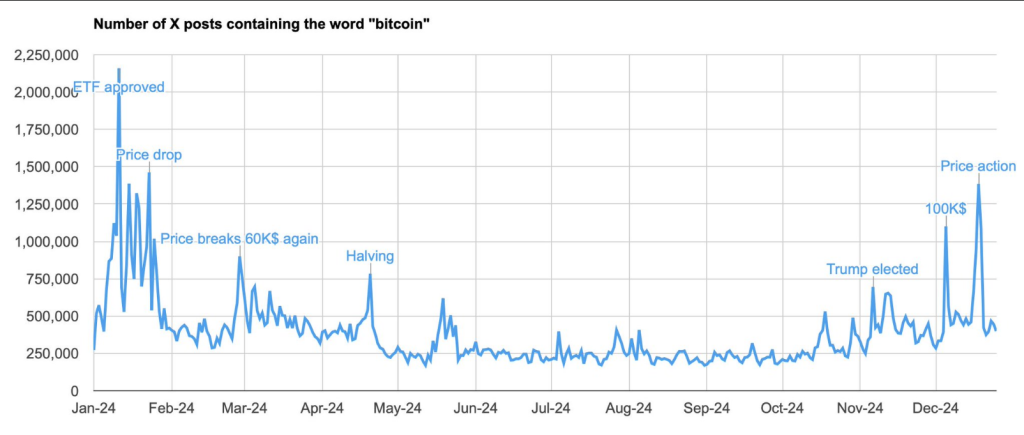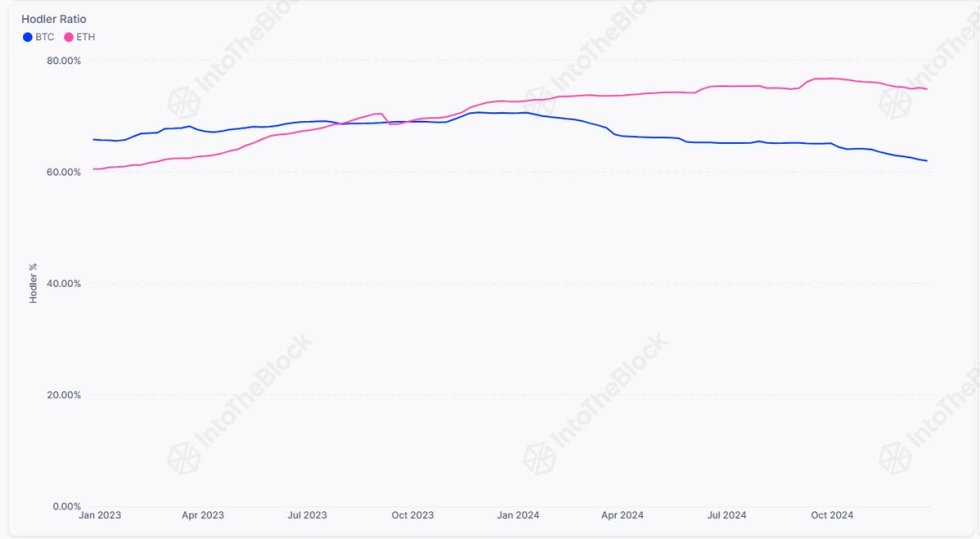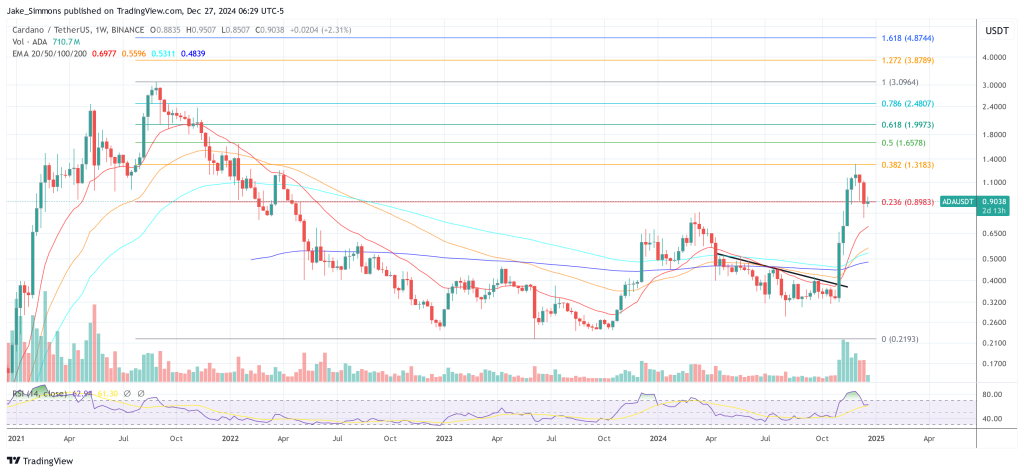
Discover how AI talent marketplaces are transforming the job market and disrupting traditional employment models.
What does the future hold for AI talent marketplaces and traditional employment models?
As artificial intelligence continues to progress and become more prominent in the workplace, it is logical to wonder what the future holds for AI talent marketplaces as well as traditional employment models.
One thing is certain: AI talent marketplaces are here to stay. According to a report by ResearchAndMarkets.com, the artificial intelligence industry is expected to grow at a compound annual growth rate of 36.2% from $86.9 billion in 2022 to $407.0 billion by 2027. This growth is driven by the increasing adoption of AI technologies in various industries and the need for businesses to keep up with the pace of technological change.
As AI talent marketplaces continue to grow, traditional employment models are likely to be disrupted even further. In the past, people typically found jobs through traditional means such as networking, job boards or recruitment agencies.
However, AI talent marketplaces are changing the game by connecting businesses with skilled professionals from all over the world, making it easier for businesses to find the talent they need quickly and efficiently. For example, Codementor connects coders with mentors for coding assistance and also offers a freelance platform where clients can post job requests and coders can apply for projects.

Another trend that is likely to continue is the increasing use of AI in recruitment and talent management. AI-powered tools like Textio can analyze job descriptions and candidate resumes, match job seekers with open positions, and even conduct initial interviews. This not only saves time and resources for businesses, but it also helps ensure that candidates are matched with jobs that align with their skills and interests.
Despite the many benefits of AI talent marketplaces, traditional employment models are unlikely to disappear entirely. There will always be some jobs that require a physical presence or that cannot be performed remotely.
Healthcare professionals, construction workers and emergency responders are some examples of jobs that require physical presence and cannot be performed remotely. Additionally, many people still prefer the stability and benefits that come with traditional employment, such as health insurance and retirement plans.
Another factor that will shape the future of AI talent marketplaces is the ongoing debate around the impact of AI on jobs. While some argue that AI will lead to widespread job loss, others believe that it will create new jobs and opportunities. The truth likely lies somewhere in between, with AI disrupting some industries while creating new ones.
Regardless, the rise of AI talent marketplaces is changing the world of work in significant ways. While traditional employment models are unlikely to disappear entirely, they will continue to be disrupted by the growth of AI talent marketplaces and the increasing use of AI in recruitment and talent management. The future of work will be shaped by many factors, including the ongoing evolution of AI technologies, changing attitudes toward work and employment, and the regulatory frameworks that are put in place to govern these platforms.
How can regulatory frameworks keep up with the rise of AI talent marketplaces?
As AI talent marketplaces continue to grow and disrupt traditional employment models, it is important for regulatory frameworks to keep up and ensure ethical and fair practices.
The rise of AI talent marketplaces presents a unique challenge for regulators, as these platforms often operate across national borders and involve a diverse range of stakeholders such as platform operators, investors, government bodies and more.
One of the main challenges for regulators is ensuring that AI talent marketplaces give fair access to all users, regardless of their background or location. This includes ensuring that job listings are not discriminatory and that all users have equal access to job opportunities. Furthermore, authorities must guarantee that these AI marketplaces are transparent in their use of personal data and that users are adequately educated about the risks and benefits of utilizing these platforms.
Another key challenge for regulators is ensuring that AI talent marketplaces adhere to existing employment laws and regulations. This might involve ensuring that workers are appropriately classified as employees or independent contractors and that they are paid fairly and get enough benefits. Furthermore, authorities must guarantee that AI talent marketplaces comply with tax laws and other legal obligations, such as those relating to worker safety and health.
To overcome these issues, legal frameworks must be versatile and adaptable in response to the changing landscape of AI talent marketplaces. A possible approach may be to create a set of industry-specific standards or guidelines that serve as a foundation for ethical and fair practices. These guidelines guarantee that these rules represent the requirements and concerns of all parties and must be produced in consultation with industry players, such as AI talent marketplaces, employees and labor unions.
Regulators can also use existing legal frameworks, such as antitrust laws and data protection regulations, to ensure that AI talent marketplaces do not engage in anti-competitive behavior or violate users’ privacy rights. For example, regulators could investigate allegations of price-fixing or collusion among AI talent marketplaces or require these platforms to obtain explicit consent from users before using their personal data for marketing purposes.
Related: Here’s how blockchain and AI combine to redefine data security
Finally, authorities may encourage more transparency and accountability in AI talent marketplaces by forcing these platforms to provide details about their algorithms, data sources and decision-making processes. This can include regulating AI talent marketplaces to explain automated decisions and allowing users to challenge these results if they think the outcomes are unfair or discriminating.
What are the benefits and drawbacks of AI talent marketplaces?
AI talent marketplaces offer access to a global pool of skilled professionals for cost-effective and flexible hiring. However, quality control, lack of commitment, security risks and communication barriers are potential drawbacks that organizations must consider when hiring freelance AI professionals through these platforms.
AI talent marketplaces are essentially platforms that connect organizations with freelance or self-employed AI professionals who can work on their projects independently. While this approach has its benefits, it also has its drawbacks compared to traditional employment models. Let’s take a closer look at both.
Benefits of AI talent marketplaces
- Access to a large pool of talent: AI talent marketplaces provide access to a large pool of skilled professionals from around the world, making it easier for companies to find the right talent for their specific projects.
- Cost-effective: Hiring freelance AI professionals through talent marketplaces can be more cost-effective than hiring full-time employees. Companies only pay for the specific project or work required, without having to bear the overhead costs associated with full-time employees.
- Flexibility: AI talent marketplaces provide flexibility in terms of project duration, allowing companies to hire professionals for short-term projects or specific tasks, without having to commit to a long-term employment contract.
- Diverse perspectives: AI talent marketplaces provide access to a diverse range of perspectives and expertise, as professionals from different backgrounds and countries can collaborate on projects.
Related: Remote work could redefine the global workforce for good
Drawbacks of AI talent marketplaces
- Quality control: It can be challenging to ensure the quality of work delivered by freelance AI professionals through talent marketplaces, especially when working remotely. This can lead to potential issues with the quality of the end product.
- Lack of commitment: Freelance AI professionals hired through talent marketplaces may not be as committed to the organization as full-time employees, as they may have other clients and projects to work on simultaneously.
- Security risks: Hiring freelance AI professionals through talent marketplaces can also pose security risks, as sensitive information may be shared with individuals who are not part of the organization’s network.
- Communication barriers: Working with freelance AI professionals from different countries and cultures can lead to communication barriers, which can affect the quality of work and the overall project outcome.
How are traditional employment models being disrupted by AI talent marketplaces?
AI marketplaces link businesses with qualified individuals from all over the world by utilizing machine learning and other AI technologies.
AI talent markets are fundamentally changing how traditional employment models operate by giving businesses more flexibility and agility in their recruiting procedures. Businesses may use independent contractors or freelance talent rather than depending on full-time staff, enabling them to easily scale up or down their workforce as necessary to meet shifting demands.
This shift toward a more flexible workforce also benefits the AI talent themselves, who are able to work on a wider variety of projects and with different companies, gaining valuable experience and exposure to diverse industries. AI talent marketplaces are thus revolutionizing the way businesses approach talent acquisition and the nature of work itself.
In today’s fast-paced and continuously changing business environment, this gives organizations access to a larger range of talents and knowledge than they would be able to obtain in their local job market, offering them a competitive advantage.
Another way that AI talent marketplaces are reshaping traditional employment frameworks is by encouraging a more meritocratic approach to talent selection. Rather than relying on traditional credentials like degrees or job experience, these markets capitalize on sophisticated algorithms and other AI tools to evaluate individuals based on their talents, performance history and other relevant variables.
This approach not only opens up opportunities for talented individuals who may have been overlooked by traditional hiring methods, but it also promotes a more diverse and inclusive workforce. By prioritizing skills and performance over traditional credentials, AI talent marketplaces are helping to break down barriers to entry and provide opportunities for individuals from a wider range of backgrounds to showcase their abilities and succeed in their careers.
This can help to eliminate bias and other types of discrimination from the recruiting process, ensuring that the best individuals are chosen based on their talents and potential, rather than their background or other irrelevant factors.
Related: How DAOs could cause the death of the CV
Additionally, these marketplaces are assisting in closing the skills gap (the difference between the skills that employers need and the skills that job candidates possess) that exists in many sectors today. These markets assist people to upskill and reskill themselves by offering access to training and development tools, ensuring that they remain competitive and employable in a continually changing employment market. This, in turn, may contribute to increased economic growth and prosperity by ensuring that firms have access to the people they require to innovate, expand and flourish.

What are AI talent marketplaces, and how do they work?
AI talent marketplaces are online platforms that connect businesses with skilled AI professionals.
Artificial intelligence (AI) talent marketplaces are a relatively new concept that is gaining popularity due to the growing demand for AI-related skills in the job market. They act as intermediaries between businesses and AI professionals, providing a platform for businesses to find the right talent for automation-related tasks. These marketplaces offer a variety of services, ranging from matching businesses with suitable AI professionals to providing training and resources for AI professionals.
The way AI talent marketplaces work involves several steps. Businesses post their AI-related projects on the platform, specifying the skills and expertise required for the project. AI professionals create their profiles on the platform, highlighting their skills, experience and project portfolios.
The AI talent marketplace then uses automated algorithms to match businesses with suitable AI professionals based on their project requirements and the AI professionals’ skills and experience. Once a match is made, the AI talent marketplace facilitates communication between the human resource and the AI professional, and the project is carried out.
Compared to traditional recruitment processes, AI marketplaces provide a number of benefits. They make it easy for businesses to find the best experts for their projects by giving them access to a global pool of AI talent.
No matter where candidates are located, companies can discover the most capable professionals thanks to this global talent pool. Kaggle, for example, is an online platform that has a global community of data scientists and machine learning professionals, and it enables businesses to find and communicate with top talent on various data science projects.

You can get bonuses upto $100 FREE BONUS when you:
💰 Install these recommended apps:
💲 SocialGood - 100% Crypto Back on Everyday Shopping
💲 xPortal - The DeFi For The Next Billion
💲 CryptoTab Browser - Lightweight, fast, and ready to mine!
💰 Register on these recommended exchanges:
🟡 Binance🟡 Bitfinex🟡 Bitmart🟡 Bittrex🟡 Bitget
🟡 CoinEx🟡 Crypto.com🟡 Gate.io🟡 Huobi🟡 Kucoin.




















Comments